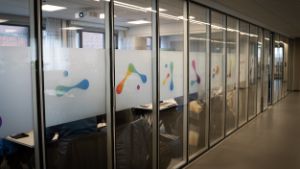The bi-weekly ODD seminar series at CCSE: Discussion: Does "algorithmic thinking" have a cousin "statistical thinking"?
Computational thinking are by some defined as the capability to resolve problems algorithmically and logically, including skills related to representing, organizing and identifying patterns in data. This may be seen as leaning in a direction of discrete and observable processes. The Norwegian translation to "algoritmisk tenkning" can be read even clearer in the direction of defining explicit, deterministic instructions to achieve a well understood outcome. At the same time, computational thinking is not only promoted as a means to allow the development of concrete code/algorithms, but also as a way of thinking constructively about phenomena in a variety of fields. And it is clearly not the case that all phenomena in nature and society only involve discrete, directly observed entities - to the contrary, many relations and processes we may be interested in are continuous and probabilistic in their nature, where we have to constructively relate to risks, uncertainties and underlying patterns. An interesting question is whether the ability to devise algorithms to solve well defined problems and the ability to relate constructively to questions in an uncertain world should be seen as two aspects of the same skillset, or as separate skills that are cultivated through separate learning experiences.

Photo: Line Schibstad Foto
Geir Kjetil Sandve will give a very brief presentation to initiate a discussion, where we hope as many as possible will contribute with their different viewpoints and experiences.
Join us via Zoom
This seminar is part of the Odd seminar series at CCSE.
The bi-weekly ODD seminar series at CCSE
The Open Discussions on Didactics (ODD) is a seminar series on Tuesdays at 14.00 every other week (odd week numbers) on Zoom.
The seminar will be maximum one hour, often closer to half an hour. It is an informal arena to present and discuss learning theory, educational research and teaching experiences within computational science. To cater to the highly heterogeneous backgrounds and interests of students, teachers and researchers in our environment, we aim for seminars that introduce listeners to new ideas within a broad spectrum of aspects, and that invites reflection and discussion. Presentations need not be mature and polished - to the contrary we hope that as many as possible wants to share undigested observations and reflections in short presentations of varied form and topics. We hope to have enough contributions to frequently have the meetings as lightning talk sessions, where three different speakers will each give a 5-10-minute presentation followed by discussion.
Published Feb. 15, 2021 9:46 AM
- Last modified Nov. 24, 2021 6:01 PM
